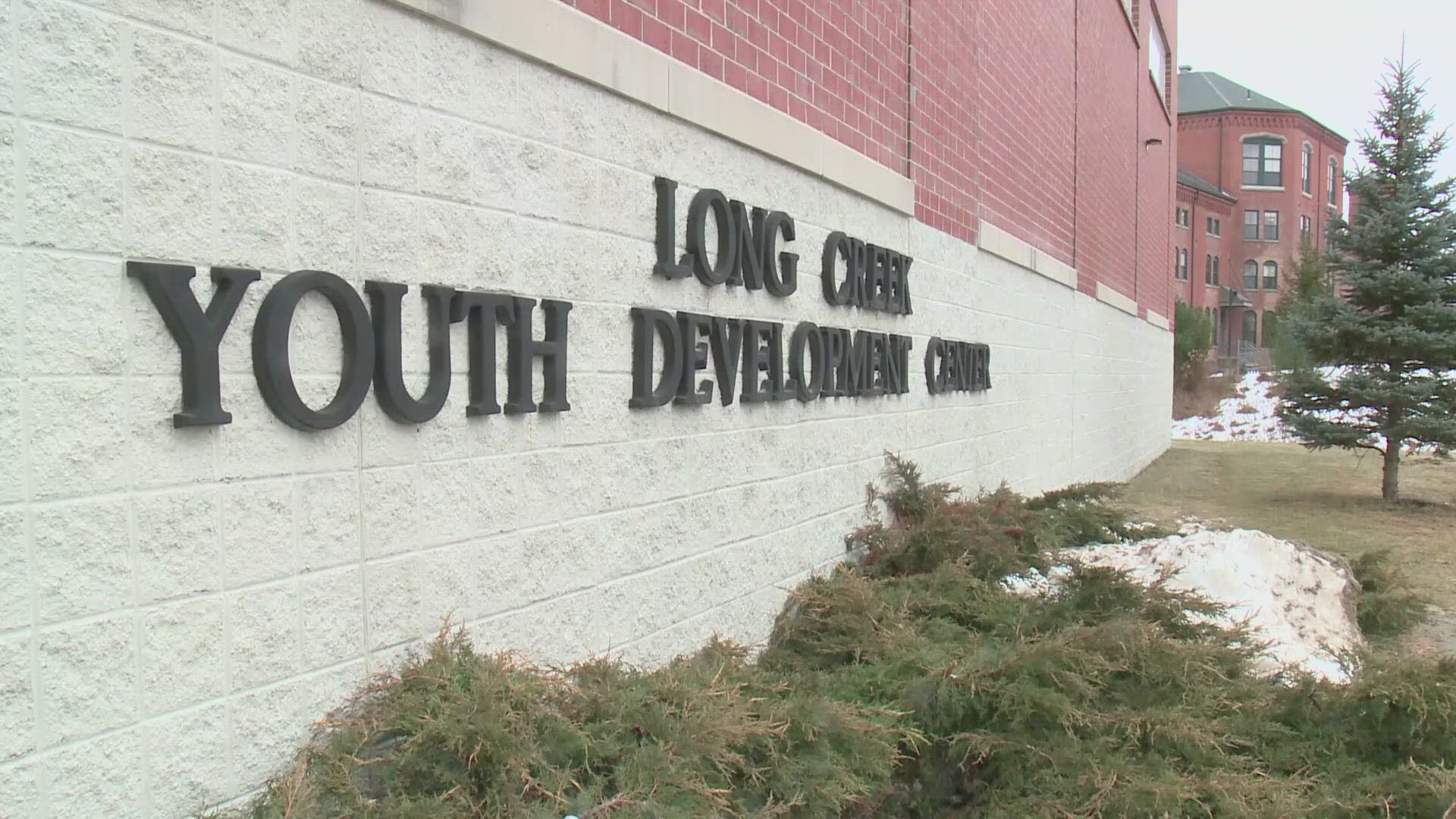PORTLAND, Maine — For years, proposals in Augusta and efforts by state officials have worked to divest resources away from Long Creek Youth Development Center, the state's only youth prison.
Fewer and fewer children are incarcerated there as well. According to an end-of-year report from the Department of Corrections, youth incarceration averaged 60-80 for the prison population pre-COVID. In 2023, that number fluctuated between two and three dozen.
But a report by the Bangor Daily News found that the decreasing number of kids in prison does not correlate to a lower number of kids who are in desperate need of intervention and mental health resources.
In fact, it found the demand increasing.
Dr. Christopher Racine, the director of emergency psychiatry at Maine Medical Center in Portland, said pre-COVID they would see a couple hundred kids visit his emergency room for mental health crises. This last year, they saw 700.
Dr. Racine said it's an issue because as fewer kids are going to prison, the amount of mental health resources and community solutions has not increased. There is a gap in the system.
"We've fallen behind in terms of funding on a state level, such that we've even identified the young people who need those services without being able to connect them to it," Dr. Racine said.
Racine said a child who visits the emergency room for a mental health crisis is supposed to only stay for a couple hours. He said sometimes kids could wait weeks to get the help they need, and often times it's too late as the crisis has already passed.
"You start trying to fit young people into boxes where they don't belong and that's where the system starts to fall apart," Racine said.
The Bangor Daily News found similar testimony at Penn Bay Medical Center on the state's midcoast.
Reporter Callie Ferguson said she wanted to report on the lack of community resources as most of the damning coverage surrounding juvenile justice goes in line with poor living and working conditions at Long Creek.
"If you set up to write about the juvenile justice system you are setting out to write about a whole lot," Ferguson said.
Ferguson said since so many systems are intertwined in the state, that the lack of adequate mental health and community resources for teens, rather then sending them to prison, is a web of a mess.
"The state does not appear to have a comprehensive plan for fixing the problems that have plagued the juvenile justice system," Ferguson said.
Through the thousands of words, weaving through the complex web of how Maine became so far behind in the way it provides for at-risk teens, Ferguson was denied an interview from Governor Janet Mills and given unclear answers from the Department of Corrections.
"When I spoke with officials from the Department of Corrections, I asked them what the vision was and struggled to get an articulate and specific answer," Ferguson said.
Ferguson said it is commendable how much they've been able to reduce the number of times children are brought into the criminal justice system, but referred to the body of her reporting showing the issue is still glaring.
NEWS CENTER Maine reached out to the Department of Corrections for an interview about its long-term plans for Long Creek but were told the commissioner was not available.
Department of Corrections officials shared its end-of-year report from 2023 with NEWS CENTER Maine, which showed its plan to develop a three-year plan for juvenile justice. The commission for providing that plan is made of people from the Department of Corrections as well as members of Maine DHHS.
For people who work with children on-site, Racine said the help must come soon.
"It makes sense to move away from incarceration of juveniles but you have to create mental health infrastructure to support the highest needs they need and the state of Maine has failed to do so and we are seeing the ramifications of that," Racine said.
Otherwise, children will continue to suffer because of the lack of resources, according to Racine.
"If someone ends up in an emergency room for a long period of time, their condition can actually deteriorate," Racine said.
For Ferguson, who spoke with several families who have seen their children neglected by the lack of resources in the state, she said families don't have a lot of hope.
"There is this sense the cavalry isn't coming, the stakes are high for parents and their communities, and the kids themselves," Ferguson said.

